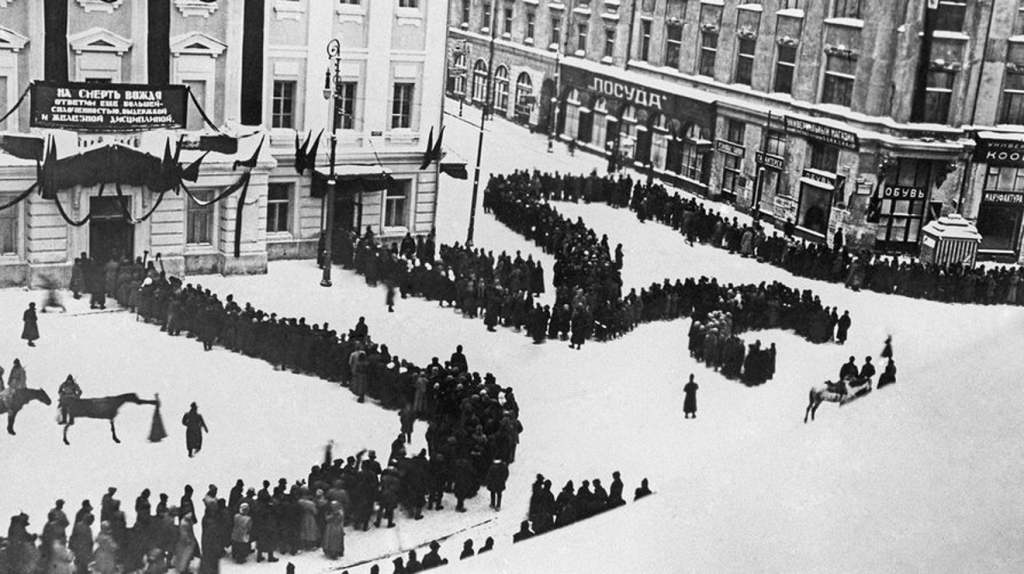This event will be hosted in hybrid format. RSVP to attend in person. Register for the Zoom meeting.
The modern city is known for speed, but some of its technologies are aimed at the manufacture and management of delay. One such technology is the queue, a prominent feature of the urban landscape that signals both blockage and flow in the distribution of material and cultural resources. As the Soviet empire rose and fell, the queue took on heightened significance as an image of an anticipatory social collective making sense of profound historical change. No queue demonstrates more complex valence in the early, late, and post-Soviet periods than the one to Lenin’s Mausoleum on Red Square, a symbolic enactment of Communism’s triumph over capitalism and death whose countless cultural representations range from the hagiographic to the grotesque. Exploring visual and verbal figurations of the Lenin line in light of Vladimir Vernadsky’s theoretical formulation of the “biosphere,” Porter shows how the ur-queue of Soviet Communism spawned surprisingly heterodox answers to the questions of how time moves and how cultures shape and are shaped by natural forces. Whether representing the Lenin line directly or reclaiming its iconography for new ends, the filmmakers Dziga Vertov and Sergei Eisenstein and the writers Anna Akhmatova, Mikhail Epstein, and Vladimir Sorokin offer the queue as a metaphor for human attempts to manipulate the terms and the tempo of biospheric energy exchange.
Jillian Porter is Associate Professor in Russian & Slavic Studies and Comparative Literature. Porter’s research explores Russian and Soviet literature and cinema in relation to French and American contexts and from the theoretical perspectives of economic criticism; everyday life studies; environmental humanities; and LGBT studies. Her first book, Economies of Feeling: Russian Literature under Nicholas I (Northwestern UP, 2017), offers new explanations for the fantastical plots of mad ambition that set the modern Russian prose tradition in motion. The book shows how foundational works of Russophone literature drew meaning from French clinical diagnoses of “ambitious monomania” and from the various forms of paper currency circulating under Nicholas I (1825-55). Economies of Feeling has been released in Russian translation as Ekonomika chuvstv: Russkaia literatura epokhi Nikolaia I (Academic Studies Press, 2021). Porter is currently working on a new book entitled The Art of the Queue: From the Revolution to Putin. This manuscript explores standing in line as a paradigmatic experience of Soviet everyday life and a generator of aesthetic forms. Together with Maya Vinokour, Porter has edited a collection of essays called Energy Culture: Work, Power, and Waste in Russia and the Soviet Union (Palgrave-Macmillan, 2023), which highlights new approaches to energy humanities within Russian, East European, and Eurasian Studies. Prior to arriving at NYU, Porter taught at the University of Oklahoma and the University of Colorado Boulder. Her research has been funded by a George F. Kennan Membership at the Institute for Advanced Study (Fall 2021); a Postdoctoral Fellowship at Harvard University’s Davis Center for Russian and Eurasian Studies (2015-2016); and a Visiting Fellowship at Arizona State University’s Institute for Humanities Research (Spring 2015).



